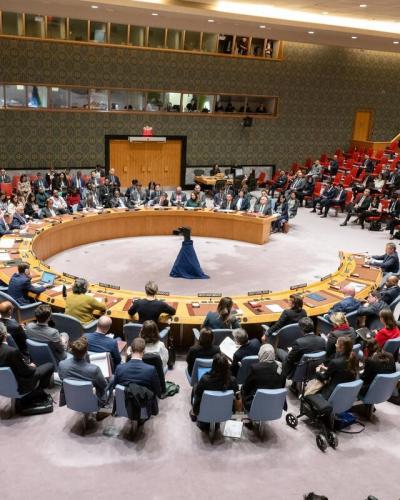The humanitarian situation in the Middle East, particularly in Gaza, is deteriorating by the day. Following the failure of four resolutions at the UN Security Council, the President of the UN General Assembly (GA) convened an emergency special session of the GA on the Middle East on October 27 at the request of several countries. By a vote of 121 in favor to 14 against, with 44 abstentions, the General Assembly adopted a resolution on the Middle East. The resolution calls for an immediate humanitarian ceasefire, rapid, unimpeded and safe humanitarian access to the Gaza Strip, and respect for international humanitarian law by all parties to the conflict. Switzerland supported the resolution. With its emphasis on the protection of civilians, the resolution was inspired by Brazil's draft resolution to the UN Security Council, which failed last week due to a US veto.
Switzerland took the floor to explicitly condemn the Hamas terrorist attacks and to call for the immediate and unconditional release of the hostages. An amendment to this effect, introduced by Canada and supported by Switzerland, failed to secure the necessary votes.
International humanitarian law, including the Geneva Conventions, is universal. It provides the legal framework for the protection of civilians in conflict situations. Switzerland recognizes Israel's legitimate desire to ensure its national defense and security. It recalls that international humanitarian law takes into account legitimate needs such as security and military necessity and must therefore be respected without exception. Violations of international humanitarian and human rights law in the Middle East must be investigated and the perpetrators held accountable.
Switzerland strongly condemns the terrorist attacks by Hamas. Three weeks after the start of hostilities, the humanitarian situation in the Gaza Strip is catastrophic. The population lacks basic necessities such as water and electricity. In view of this situation, Switzerland calls on all parties to respect their obligations under international humanitarian law, to protect the civilian population and to allow rapid, safe and unhindered humanitarian access to Gaza.



